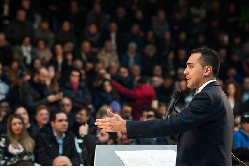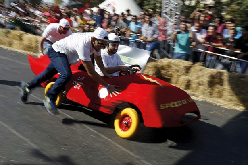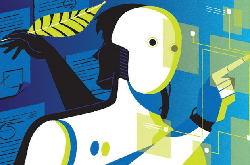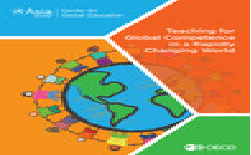February 2018 Research, Science and Knowledge
Read the articles selected in February 2018
Taking simplification of EU Funding to the next level
Source: http://www.eua.be
EU funding represents up to one-fifth of universities’ income structures and intersects diverse income streams at a regional and national level, linked with different sets of rules. Simplification improves the access to the European programmes and enhances the trust of citizens in the institutions.
OECD Handbook for Internationally Comparative Education Statistics
Source: http://www.oecd.org
This study delivers a framework of definitions and methodologies that underlie the statistics and indicators developed in the time by the OECD and used as international standards for the collection of educational data and the comparison of education systems on the base of performances, practices, and resources.
Read more:
“Grand challenges” reshape universities’ research agendas
by Rachael Pells
Source: Times Higher Education, 17 February

Twenty major higher education institutions in the US and Canada are leading grand challenge programmes, a strategy to make their research more attractive for popular support and public investments, promoting a synergy between science and industry while expanding knowledge with a fresh approach.
Read more:
https://www.timeshighereducation.com/news/grand-challenges-reshape-universities-research-agendas
Knowledge diplomacy or knowledge divide?
By Jane Knight
Source: University World News, 16 February
International higher education plays today a key role in diplomatic relations, which can contribute as much to strengthening relations between countries in addressing global issues, as to a knowledge divide between peoples. In turn, international relations can enhance international higher education and research.
Read more:
http://www.universityworldnews.com/article.php?story=20180214084632675
The public mostly trusts science. So why are scientists worried?
By Cat Jackson
Source: Science, 18 February

Surveys deny the emphasized decline of trust to science in the American society, only good for emphasizing the defensive rhetoric used sometimes in the scientific communication. Scientists have to share with simplicity not only their findings but also what they’ve learned and made their science valid.
Read more:
http://www.sciencemag.org/news/2018/02/public-mostly-trusts-science-so-why-are-scientists-worried
Italian elections leave science out in the cold
By Alison Abbot
Source: Nature, 20 February

Italy’s already low R&D spending is in decline, and the gap between north and south in scientific achievement and investment is widening, feeding regionalist and populist sentiments. In the debates of the current electoral campaign, it seems that this disinterest will just continue irrespective of the vote outcome.
Read more:
https://www.nature.com/articles/d41586-018-02223-7
University leaders push for Europe-wide excellence initiative
By Ellie Bothwell
Fonte: Times Higher Education, 15 February

A new European excellence initiative will implement competitiveness in our universities through new funding at national and European level. The purpose of this new framework is to spread good practice in research assessment to spot strengthens and weaknesses of the national systems.
Read more:
https://www.timeshighereducation.com/news/university-leaders-push-europe-wide-excellence-initiative
Energy transition and the future of energy research, innovation and education: an Action Agenda for European Universities.
Fonte: http://www.eua.be, December 2017
Energy is the fundament of economic growth. The availability of low-carbon infrastructures for all is the greatest challenge of sustainable development. Universities expertise is able to deliver cross-disciplinary approaches to find solutions that integrate a wide spectrum of technologies, systems, economies, and markets.
What about passion in education? The concept of passion, why it is important and how teachers can promote it
By Zuleica Ruiz-Alfonso, Lidia Santana Vega & Elina Vilar Beltran
Source: European Scientific Journal, January 2018
The factor of passion in educational contexts is a field of research as much recent as evident in its importance, from a psychological-motivational perspective, as an investment of time and energy in an activity and factor of scholastic productivity and can be transmitted by teachers through appropriate strategies.
Academic resilience
By Tommaso Agasisti, Francesco Avvisati, Francesca Borgonovi &Sergio Longobardi
Source: http://www.oecd.org/
This report analyzes the school characteristics that more contribute to strengthening the capacity of students to succeed in school despite their disadvantaged socio-economical background, together with the individual correlates and broader protective factors that help them to develop resilience.
Read more:
http://www.oecd-ilibrary.org/education/academic-resilience_e22490ac-en
“Sharp drop” expected in global student mobility growth
By Brendan O’Malley
Source: University World News, 9 February
Global student mobility is likely to slow in the next decade with the increased supply of domestic higher education in emerging and advancing economies, which will lead to a growth in local tertiary enrolments.
Read more:
http://www.universityworldnews.com/article.php?story=20180209120222866
Mid-term evaluation of the Erasmus +programme (2014-2020)
Source: the European Commission
Erasmus+ turns out to be one of the most positive and visible successes of the EU, having instilled the perception that learning mobility brings benefits to individuals and that learning fosters a sense of belonging to Europe. The positive impact and the improved accessibility of the programme reverberate on youth policies.
Erasmus+ mid-term review: Eua’s recommendations for the 2020 programme
Source: http://www.eua.be
Erasmus + has boosted integration and innovation, and its importance for society and the economy in Europe requires to continue to improve the simplification and attractiveness through more user-friendly tools and procedures and more efficient funding.
AI is the future but universities must retain the values of the past
by Alice Gast
Source: Times Higher Education, 1 February

The role of AI in the future of learning is undeniable, but the proper task of education is to ensure the continuity of their core values in order that learning remains a deeply human activity and relation. The balance of continuity and change is the best approach to the production of knowledge.
Read more:
https://www.timeshighereducation.com/opinion/ai-future-universities-must-retain-values-past
Italian court pushes back on the race towards English
By Rosemary Salomone
Source: University World News, 3 February
A decision of Italy’s high administrative court raises a number of questions about the internationalization of university courses taught solely in English, which has given momentum to a backlash in Northern Europe. After the ruling, the Italian language is a fundamental element of cultural identity, essential to teaching and learning.
Read more:
http://www.universityworldnews.com/article.php?story=2018020304275939
Indicators of successful transitions: Teenage attitudes and experiences related to the world of work
By Anthony Mann, Elnaz T. Kashefpakdel & Jordan Rehill
Source: http://www.oecd.org/

This report analyzes a set of indicators, such as the academic ability and the social background of the pupils, that are considered predicting their professional future, and can, therefore, be used to identify the most vulnerable categories requiring more care by the teachers.
Teaching for Global Competence in a Rapidly Changing World
By the Center for Global Education
Source: http://www.oecd.org, 22 January

In today’s classrooms is our future and the realization of the SDGs. This publication analyzes the implications of global competence for education and emphasizes the crucial role played by teachers in making the world a better place.
Read more:
Learning and Teaching in Europe’s Universities: An EUA position paper
Source: http://www.eua.be, 29 January
Recognizing Learning and Teaching as a core mission and responsibility of higher education requires sufficient funding to promote innovation in the pedagogical work. Each university should have a clear profile, defined by institutional autonomy and context-sensitive programmes.
Lowering entry grades for poorest pupils “sets them up to fail”
By Rachael Pells
Source: Times Higher Education, 29 January

Lowering entry requirements in the most selective universities to facilitate the access of the most disadvantaged pupils risks to increase the dropout rates. Instead, it is rather the university dropout the measure for the democratization of the elite.
Read more:
https://www.timeshighereducation.com/news/lowering-entry-grades-poorest-pupils-sets-them-fail
Bac le rattrapage
By Catherine Mallaval & Marie Piquemal
Source: Libération, 24 January
The new reform of the secondary diploma in France presents a new model of high school, with a distinction between compulsory and elective subjects, at risk of deepened social gaps, and a final exam based on a remarkable continuous control of students and geared toward their following orientation.
Socially isolated individuals are more prone to have newly diagnosed and prevalent type 2 diabetes mellitus – the Maastricht study-
By Stephanie Brinkhues etc.
Source: BMC Public Health, 19 December 2017
This study highlights the role of social networks and their single characteristics in the development of type 2 diabetes. Socially isolated or living alone individuals with the lack of emotional and practical support should be considered as high-risk groups in health care.
Info
- Pubblicato il : 05/03/2018 Modificato il : 04/04/2019
Allegati
- Taking simplification of EU funding to the next level pdf
- Passion in education pdf
- Energy transition pdf
- Indicators of successful transtitions pdf
- Erasmus midterm review pdf
- Erasmus midterm evaluation pdf
- Learning and teaching in Europe's universities pdf
- Socially isolated individuals are more at health risk pdf
- Bac le rattrapage pdf

